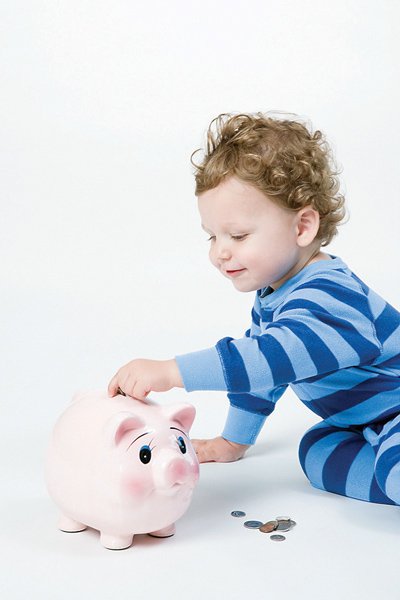It’s dinner time at the Harris house and turkey tacos are on the
menu. Avery, 6, standing in a chair, is browning the meat on the
stove with the help of his mom, Andee. Eden, 3, growing impatient,
has started munching on her tortilla, abandoning her post at the
other end of the counter where dad Jonathan is cutting up the
watermelon side dish.
It’s dinner time at the Harris house and turkey tacos are on the menu. Avery, 6, standing in a chair, is browning the meat on the stove with the help of his mom, Andee. Eden, 3, growing impatient, has started munching on her tortilla, abandoning her post at the other end of the counter where dad Jonathan is cutting up the watermelon side dish.
The family used to eat out a lot. But that was before Andee’s salary as a partner in a technology consulting firm got cut 30 percent last year. They decided to cook more at home and turn the kids into kitchen helpers to make the meals more fun.
“Dinner can take a lot longer to prepare than it does to eat,” said Jonathan as he tried to corral his distracted daughter. “Eden, are you going to help me cut the watermelon?”
Cooking dinner instead of going out to eat. Renting movies instead of trekking to the multiplex. Families across the country have been making this kind of little trade-off for months since the economy tanked. If a parent has been laid off, tougher financial choices loom: Do we keep paying for piano lessons? Can we afford a family vacation? And what about those college funds?
Whatever route parents take in navigating the recession, experts say children are paying attention. The financial decisions parents make today, the priorities and examples they set, will have an important influence on their children’s financial lives, experts say. Just as many children of the Great Depression learned to hoard money in their houses for fear of another banking collapse, today’s children will develop financial habits based on what they learn from parents coping with the recession.
Patricia Seaman, director of marketing and communications for the National Endowment for Financial Education, said the economy has created a teachable moment for parents. Seaman said activities such as having children help cook their own food instead of eating in restaurants can teach them to be proactive about saving money during a financial crunch.
“You can share your own (financial) values, like having a rainy day fund. If you don’t have that, you can use the economy as a great example of why it’s important to save,” Seaman said. “You can use this as an opportunity to start to prepare them for handling this when out on their own.”
Experts say the learning begins with parents leading by example. Taking kids grocery shopping with coupons and putting the savings in a piggy bank, eating leftovers and brown-bagging lunches, repairing shoes instead of replacing them – these are all ways to teach kids the value of a dollar and the importance of being frugal.
Jim Stoops, a financial consultant in Charles Schwab’s Naperville, Ill., office, said parents have the important job of being their children’s primary financial role models.
“The biggest issue is how you react to any hardships and changes in the budget,” Stoops said. “Financial hardships in this country are going to happen again. How you insulate yourself and deal with them and come out of it is very important for kids to see.”
The lessons also come from having age-appropriate conversations with kids, striking the right balance between what to share and what to shield them from.
With younger children, experts suggest speaking in simple terms, mindful of language and tone. Explain that the family is facing the same challenges many others are and that the changes in the family’s lifestyle are temporary. Offer trade-offs, such as working together to fix up an old bike instead of buying a new one.
Be honest with them about the necessary changes to your spending habits, but reassure them that their basic needs will be met.
Andee Harris explained to her children that when they go shopping for a gift for a friend’s birthday party they will no longer also receive a toy. Instead, the kids put things they want on a wish list tacked to the refrigerator door. When a special occasion arises, such as a birthday of their own, they get to pick something from the list.
“We try to explain wants versus needs. Needs are your food, shoes, the house,” Andee Harris said. “We’re honest with them but we’re not freaking them out.”
Parents of older children can be more explicit about the financial sacrifices the family has to make. The conversation can address their expectations for material goods and explore ways that they could earn their own money to pay for some of the things they want.
Whatever you do, don’t ignore the challenges your family is facing, said Nancy Molitor, a Wilmette, Ill., psychologist. Trying to protect your children from your financial troubles could do more harm than good.
“We think we’re doing our children a favor by not burdening them but we often are doing just the opposite. You pretend everything is OK, but the children pick up on it,” Molitor said. “You do need to sit down and have some acknowledgment about you cutting back.”
Molitor added that, in most cases, children will adjust to the lifestyle changes just fine.
“Children are more resilient than we give them credit for,” Molitor said. “If the parents are calm and the family is banding together, the children will bounce back.”














